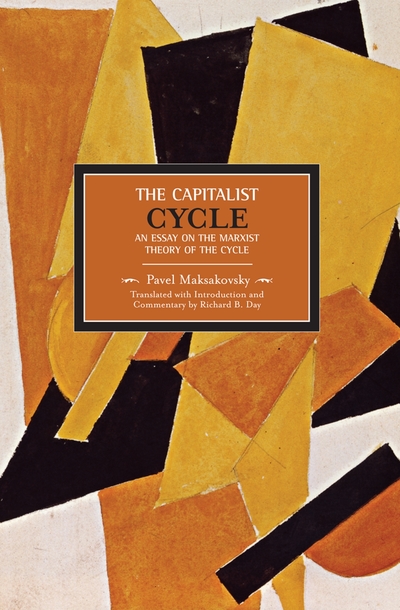Translated with introduction and commentary by Richard B. Day, University of Toronto
The Capitalist Cycle is a translation of a previously unknown work in Marxist economic theory. Originally published in 1928, this rediscovered work is one of the most creative essays witten by a Soviet economist during the first two decades after the Russian Revolution. Following the dialectic of Hegel and Marx, Maksakovsky aims to provide a ‘concluding chapter’ for Marx’s Capital. The book examines economic methodology and logically reconstructs Marx’s analysis into a comprehensive and dynamic theory of cyclical economic crises. The introductory essay by Richard B. Day situates Maksakovsky’s work within the Hegelian and Marxist philosophical traditions by emphasizing the book’s dialectical logic as well as its contribution to economic science.
Biographical note
Richard B. Day, Ph.D. (1970), University of London, is Professor of Political Economy at the University of Toronto. He has written extensively on early Soviet debates and translated several books, including works by N.I. Bukharin and E.A. Preobrazhensky.
Readership
All those interested in economic methodology, economic philosophy, economic theory, economic history, and Marxism.
Table of contents
Translator’s Introduction: Maksakovsky’s The Capitalist Cycle
Pavel V. Maksakovsky
The Capitalist Cycle: An Essay on the Marxist Theory of the Cycle
Foreword by A.S. Mendel’son
Introduction
1. Methodological Foundations of the Theory of the Conjuncture
2. The General Theory of the Cycle
3. The Role of Credit in the Conjuncture
4. The Problem of Crises in the Works of Marx
5. In Place of a Conclusion
Bibliography
Index


